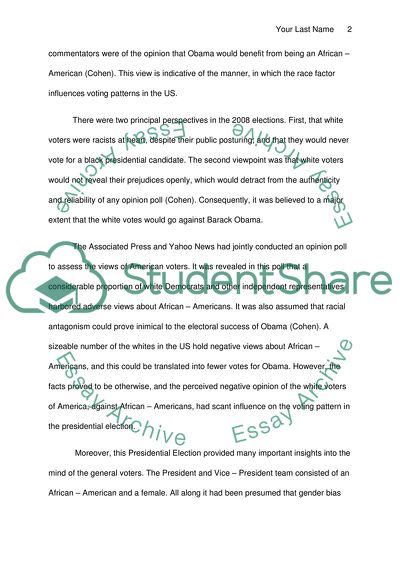Cite this document
(Race in Politics Research Paper Example | Topics and Well Written Essays - 1500 words, n.d.)
Race in Politics Research Paper Example | Topics and Well Written Essays - 1500 words. Retrieved from https://studentshare.org/politics/1743689-race-in-politics
Race in Politics Research Paper Example | Topics and Well Written Essays - 1500 words. Retrieved from https://studentshare.org/politics/1743689-race-in-politics
(Race in Politics Research Paper Example | Topics and Well Written Essays - 1500 Words)
Race in Politics Research Paper Example | Topics and Well Written Essays - 1500 Words. https://studentshare.org/politics/1743689-race-in-politics.
Race in Politics Research Paper Example | Topics and Well Written Essays - 1500 Words. https://studentshare.org/politics/1743689-race-in-politics.
“Race in Politics Research Paper Example | Topics and Well Written Essays - 1500 Words”, n.d. https://studentshare.org/politics/1743689-race-in-politics.


